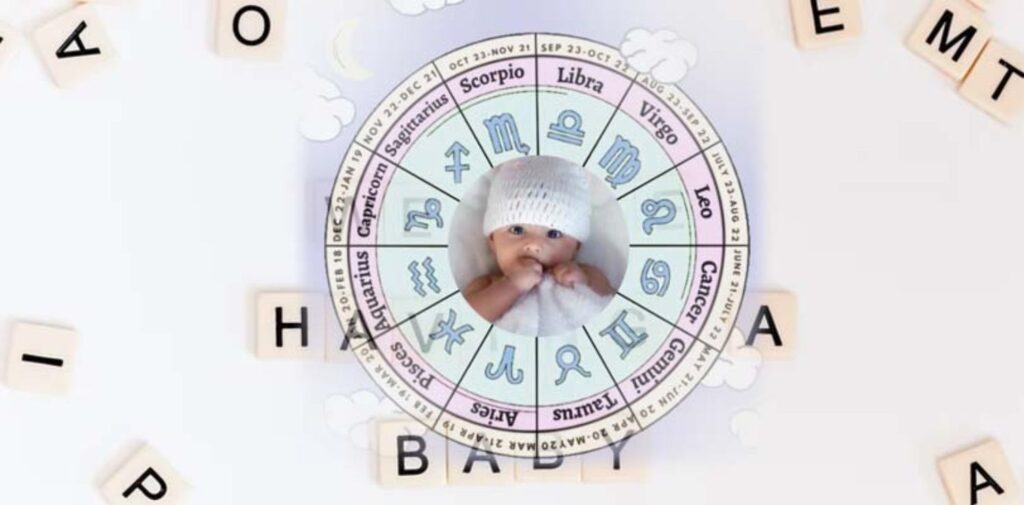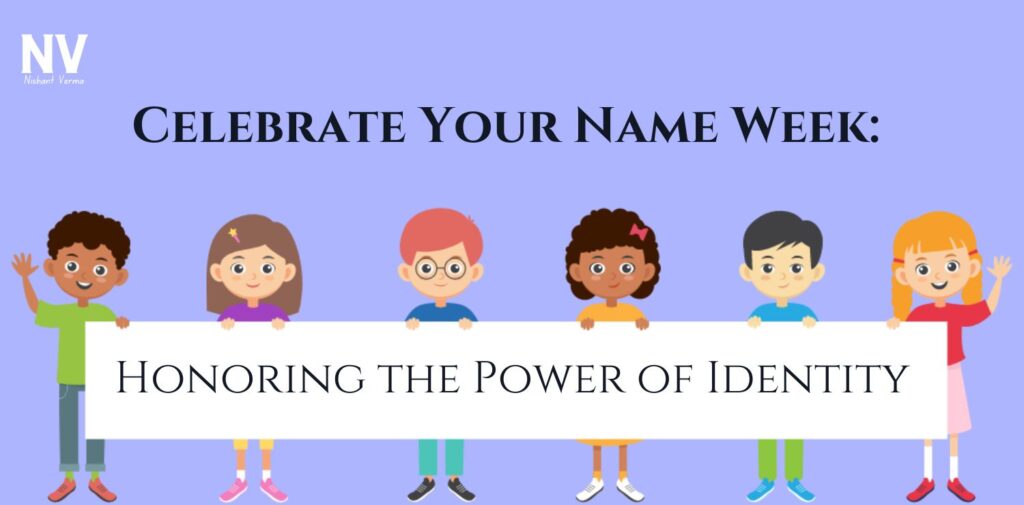The week from 2nd to 8th March is celebrated as “Celebrate Your Name Week,” an occasion that encourages people to take pride in their names and recognize their personal identity. Names are more than just labels we use to identify one another; they are an integral part of our culture, history, and personal journey. This special week provides an opportunity to reflect on the significance of our names and understand the unique stories they tell about our family, heritage, and the values that have shaped us.
In India, where names hold great cultural and religious importance, “Celebrate Your Name Week” carries a special meaning. Every name has a story behind it, and in this diverse country, names are deeply connected to our traditions, communities, and family histories. From the moment we are born, our names help define us, and they become a key part of our identity throughout our lives.
Why is Your Name Important?
Your name is one of the first things that people know about you. It is a reflection of your identity, and it often carries with it a deep personal connection. In India, names are given based on various factors such as religion, region, caste, and sometimes even the circumstances of one’s birth. They are often chosen with great care and love, and they can have a significant influence on a person’s life.
Names can symbolize a wide range of things, such as qualities or traits parents hope their child will embody, or they may be rooted in cultural or religious beliefs. For example, in Hinduism, many names are derived from gods and goddesses, symbolizing qualities like strength, wisdom, or purity. Similarly, names in Islam may be inspired by great historical figures or religious teachings. In some parts of India, names are also influenced by astrological beliefs, where the time and date of birth play an important role in naming.
Your name may also carry the weight of family history. In many Indian cultures, names are passed down through generations to honor ancestors and keep the family’s legacy alive. This can instill a sense of pride and connection to one’s roots. It can be empowering to know that your name has been shared by your forebears, and that it is a thread that links you to your heritage.

How to Celebrate Your Name Week
Celebrate Your Name Week, observed between 2nd to 8th March, invites people to take time to appreciate the significance of their name and embrace their identity. Here are some simple but meaningful ways to celebrate this week:
- Learn the Meaning of Your Name: One of the first steps in celebrating your name is understanding its meaning. Many people are unaware of the significance their name carries. Take time to ask your parents or elders about the origin and meaning of your name. You may discover that your name holds a deeper connection to your family’s history or reflects a special trait that was hoped for you. This learning can help you appreciate the true value of your name.
- Share the Story Behind Your Name: This week, share the story of your name with friends, family, and colleagues. Explain the significance it holds for you and your family. Doing so can help others understand your personal identity and the cultural or religious significance of your name. It can also help you connect with others who share similar naming traditions or stories.
- Show Respect to Other People’s Names: Celebrate Your Name Week is not only about appreciating your own name, but also about respecting others’ names. Acknowledging the diversity of names in India can create a more inclusive and respectful environment. Pay attention to the pronunciation of others’ names and make an effort to learn how to say them correctly. Names are often an important part of a person’s identity, and showing respect for them is a sign of courtesy and kindness.
- Teach Children the Importance of Their Names: It is important to teach younger generations about the value of their names. During this week, take the time to explain to children the history, meaning, and cultural significance behind their names. Encourage them to take pride in their names and understand how they are a link to their family, culture, and identity. This can help build confidence and a sense of belonging.
- Personal Reflection on Your Identity: Celebrate Your Name Week is an excellent opportunity to reflect on how your name shapes your identity. Think about how your name has influenced the way you see yourself and how others perceive you. Have you ever felt a connection to your name in a special way? Does it remind you of your roots, your values, or the people who chose it for you? Reflecting on these aspects can deepen your sense of self.
- Post About Your Name on Social Media: In the age of social media, it’s easier than ever to share your story with a wider audience. Use platforms like Facebook, Instagram, or Twitter to post about the meaning and significance of your name. You could share a picture of yourself with a brief story or video explaining what your name means to you. This is a fun way to engage with others and start conversations about the power of names.

Names and Their Cultural Significance in India
In India, names are not just words; they are often sacred and deeply meaningful. Each region, religion, and language has its own unique naming traditions, making the country’s names as diverse as its people.
For instance, in Hinduism, names often reflect spiritual beliefs and are chosen based on astrological readings. A baby’s name may be selected according to the auspiciousness of the stars or the deity the parents believe in. The names of gods and goddesses are popular choices, and each one has a powerful meaning. For example, the name “Lakshmi” is associated with wealth and prosperity, while “Krishna” refers to the beloved god of compassion.
In Muslim communities, names are often inspired by Arabic words, with many being derived from the Quran or the names of important figures in Islamic history. Names like “Ali” and “Fatima” carry a sense of respect and reverence for Islamic teachings and traditions.
In Sikhism, names are often inspired by the teachings of the Guru Granth Sahib, the central religious scripture. Sikh names are often unisex and carry meanings related to virtues such as bravery, humility, and devotion. Common Sikh names include “Harpreet,” meaning “one who loves God,” and “Simran,” meaning “remembrance” or “meditation on God.”
The diversity of names in India reflects the rich cultural mosaic of the country. From names in the north to those in the south, every region has its own unique way of naming, and each name tells the story of the family, religion, and heritage from which it originates.

The Psychological Power of Names
A name can have a lasting impact on a person’s life. It is part of our self-perception, influencing how we view ourselves and how others see us. Research has shown that names can even affect the way we are treated by others. For example, names that are commonly associated with certain social or cultural groups may lead to biases, whether positive or negative.
However, embracing the power of your name and understanding its value can help you overcome any negative biases and build self-confidence. By celebrating your name, you empower yourself and encourage others to do the same. It’s a reminder that each individual is unique and that their identity, rooted in their name, deserves respect.
Conclusion
Celebrate Your Name Week, from 2nd to 8th March, offers a wonderful opportunity for self-reflection and connection with your heritage. Names are powerful symbols of identity, carrying with them the rich cultural, historical, and personal stories of individuals. In a diverse country like India, names are integral to who we are, linking us to our roots and shaping the way we are perceived by the world.
This week is not just about celebrating our own names, but also respecting and understanding the names of others. It is a time to come together in appreciation of our shared humanity and the unique identities that make us who we are. By celebrating our names, we celebrate our individual journeys, our cultural backgrounds, and our connection to the broader fabric of society. So, as we honor the names that define us, let’s also remember the importance of mutual respect and acceptance, making India a place where every name is valued and celebrated.




